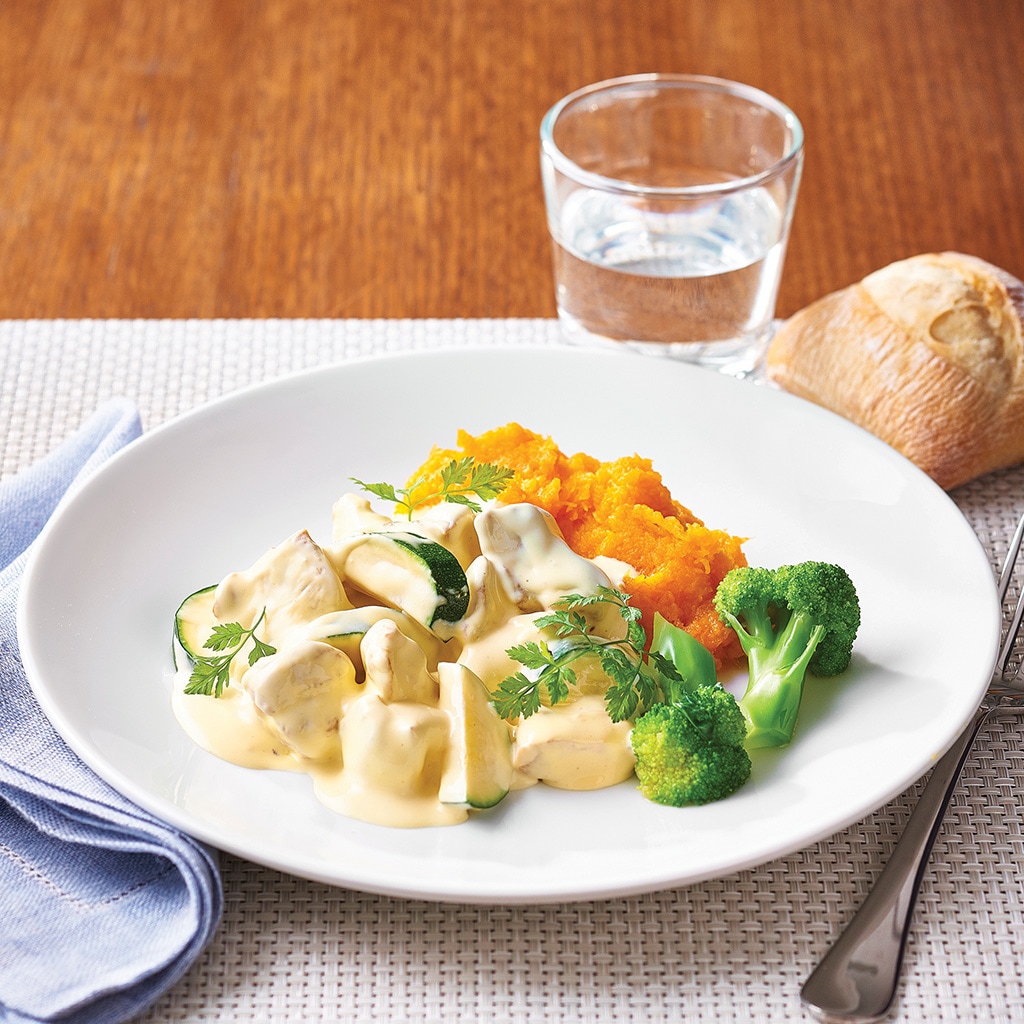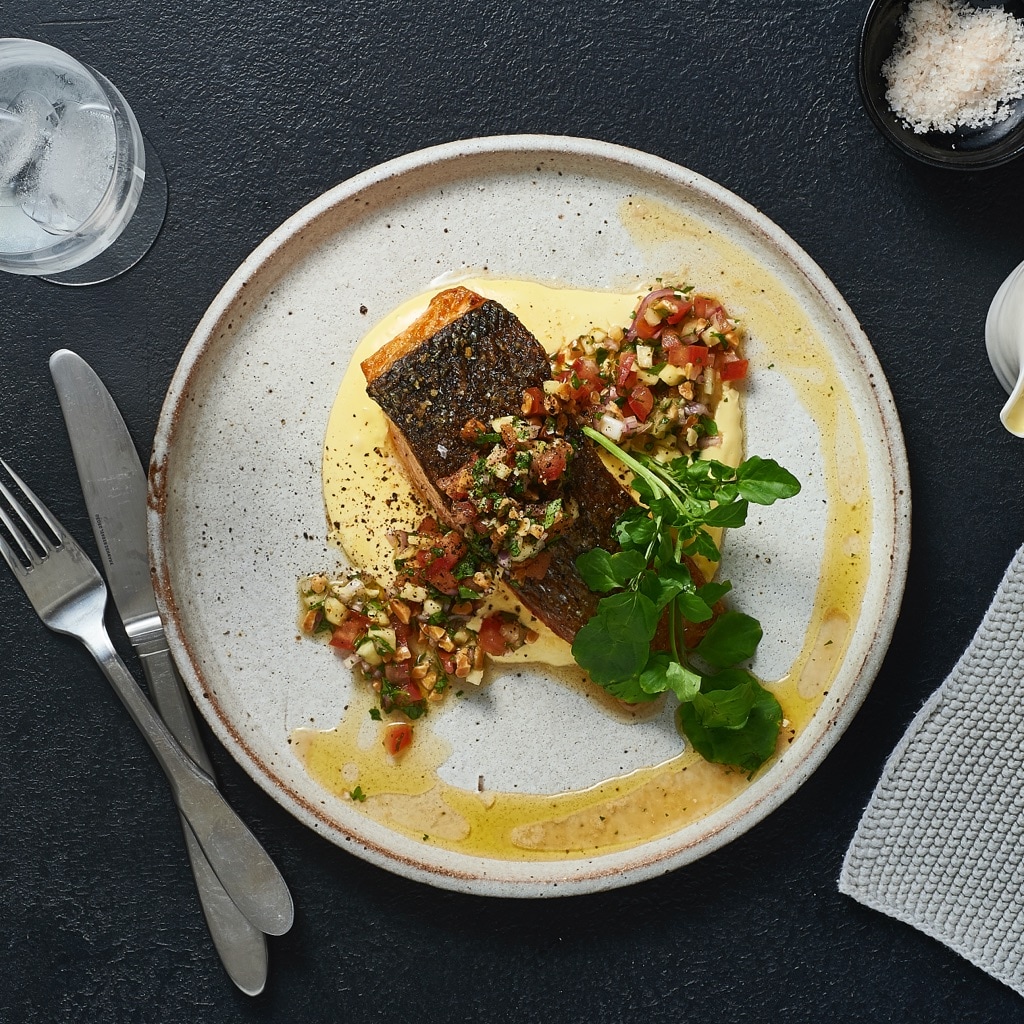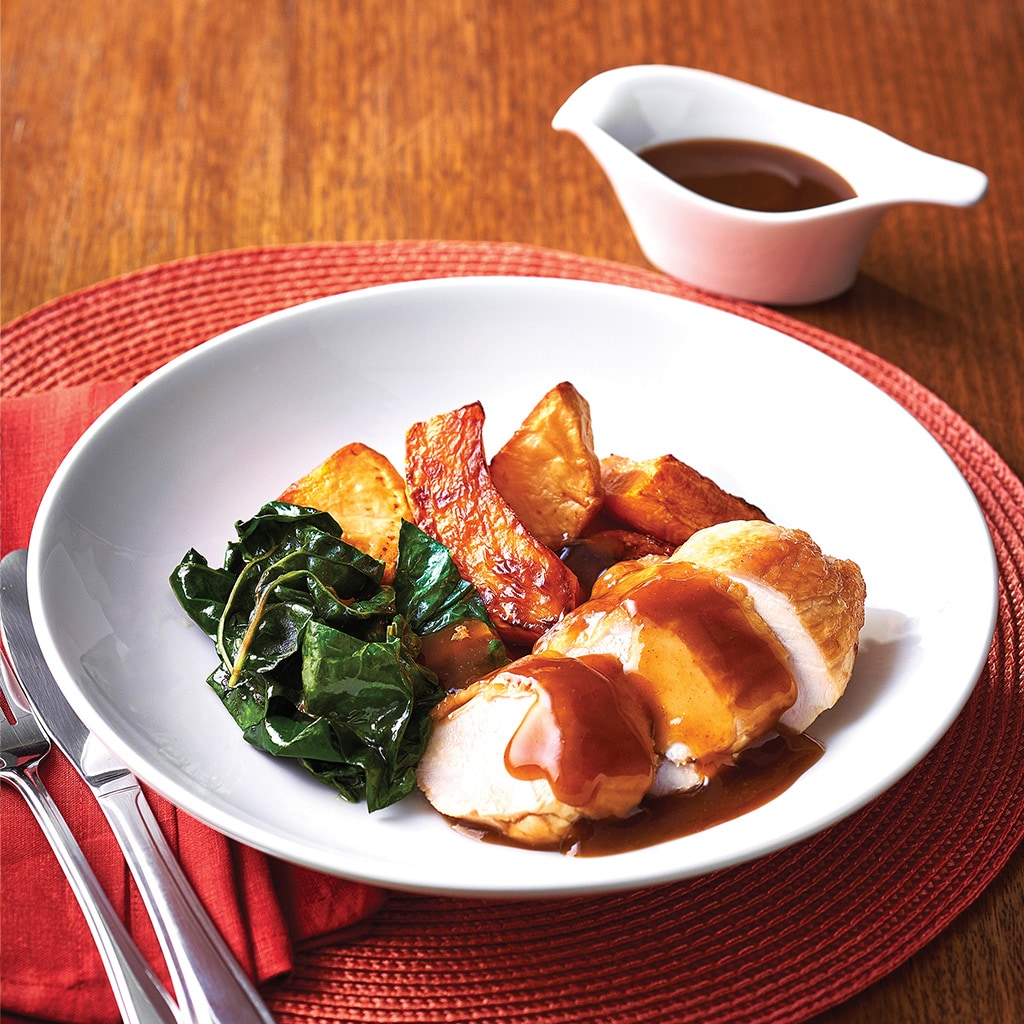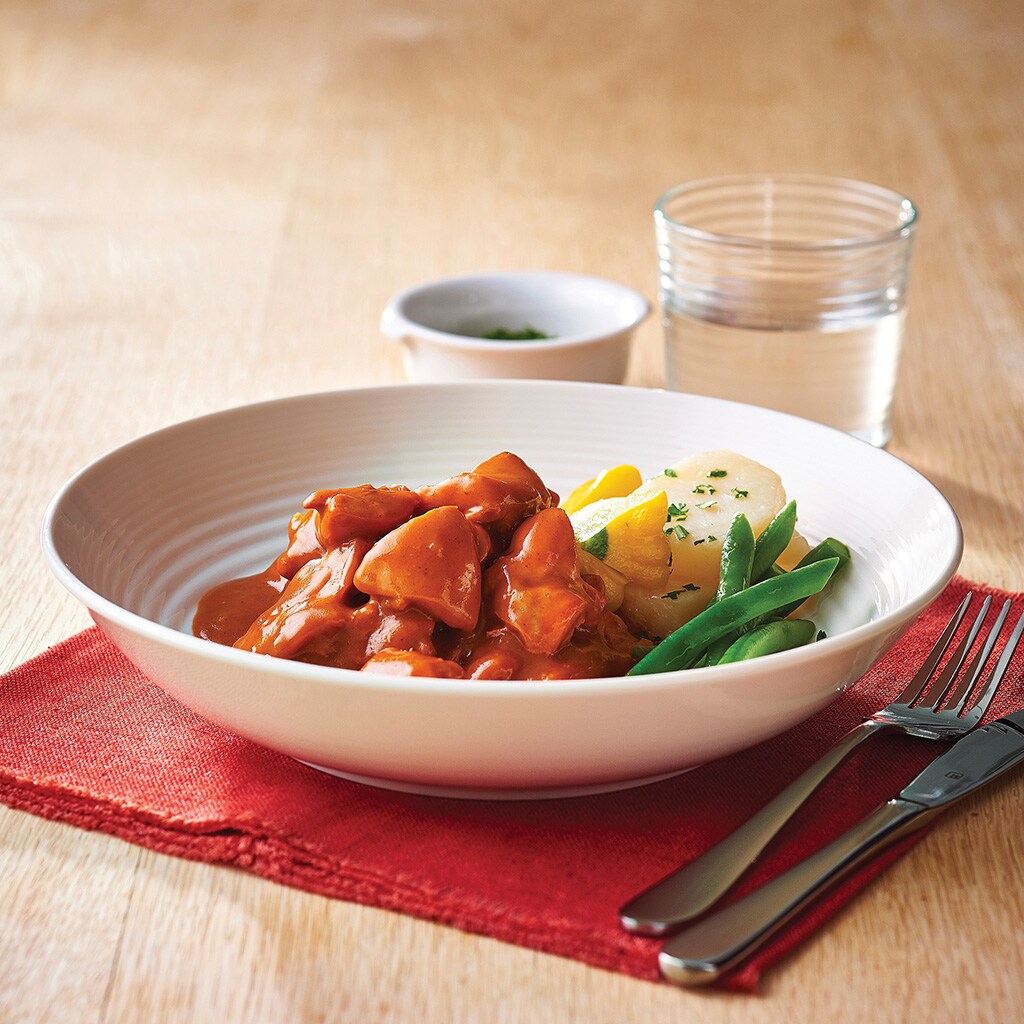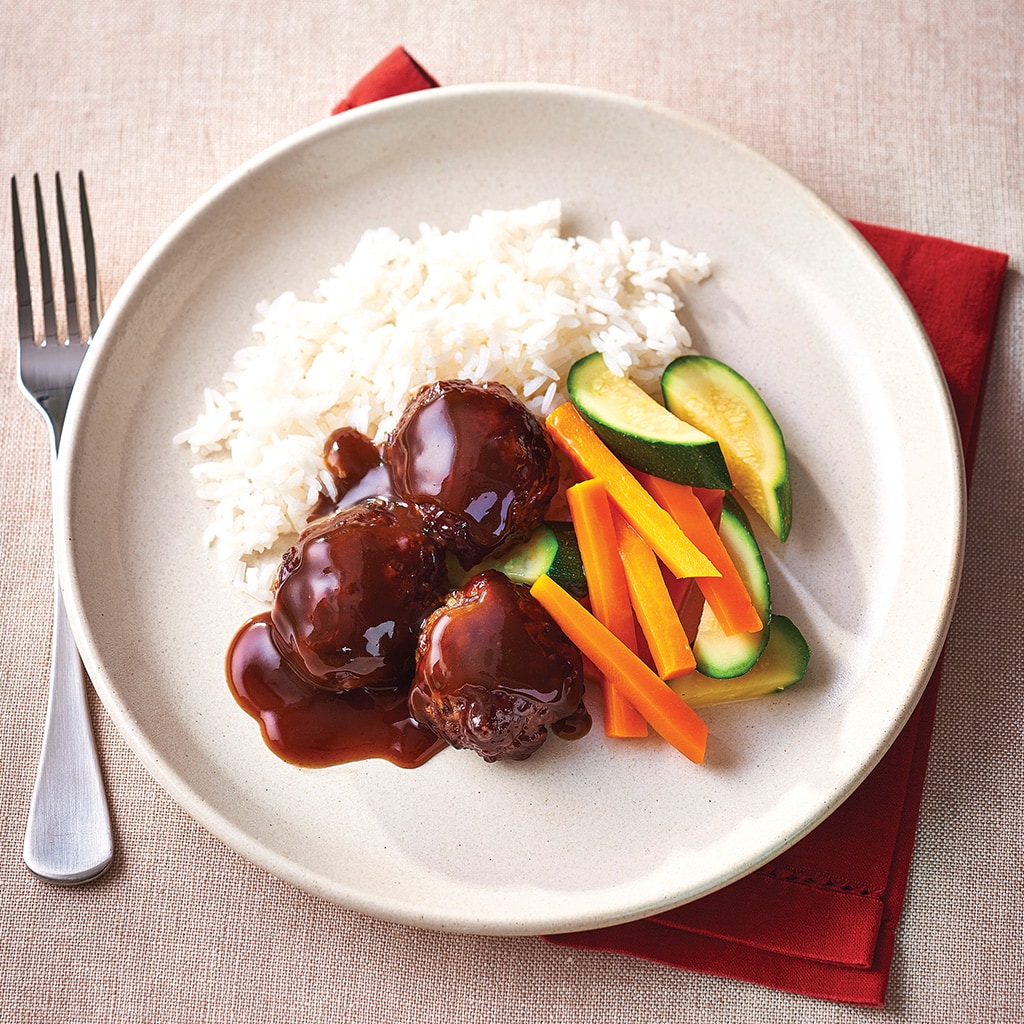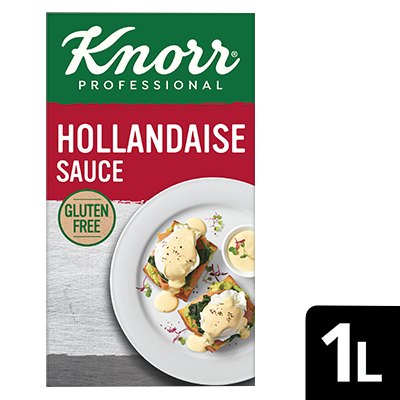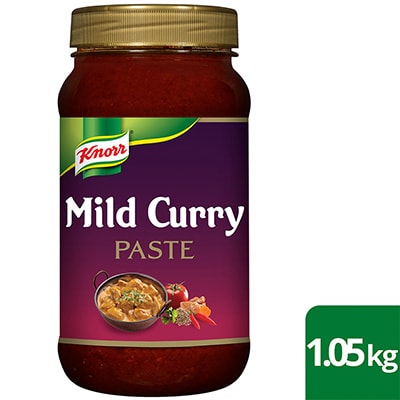
Edgewater Mercy Hostel is a two-year pilot program for a household living style of Aged Care that is gaining popularity in Australia.
In short, the residents live in small groups in a home that is part of a complex of individual houses. Edgewater consists of 4 houses of 8 or 9 residents in each.
We spoke to Natasha Nieuwenhuis, the Chef Manager at Edgewater to find out exactly how the household living structure works and what the impact on the residents has been.
Natasha has been at Edgewater for a little over a year. She has been a Chef for 10 years and has studied clinical nutrition.
As the residents live in separate houses that operate in a very similar style to a share-house albeit supervised, the way food is planned, prepared and eaten is different to the way a traditional Aged Care home operates.
Since there is an emphasis on creating an environment that evokes a sense of ‘home’ for the residents, a master menu is created by the Mercy Health Service Manager Dennis Stirling in collaboration with a nutritionist.
The master menu has a selection of dishes in each category. For example there are 40 to 50 variations of chicken dishes.
From this master menu, Natasha then plans very specific menus with each of the households. She does this on a 14-day rotation and collaborates directly with the residents so they can contribute what will be on the menu.
As Natasha explains,
“Each household will have one main dish for each meal. The households vary. So while one house elects to have a curry on a particular night, another house may choose to have meatloaf. Residents are then free to eat at another house (or have the meal brought over) if they prefer the meal that is being served there.
Because we work so closely with the residents, there tends to be very little swapping at meal times but it does happen.”
Each household has 2 permanent Care Companions who essentially run the household. Being full-time means the Care Companions are very close to the residents and are able to create a very comfortable, warm and homely environment for the residents.
All meals are prepared by the Care Companions and are taken together, household residents and staff sitting together at the dining table, eating a meal, that often, the residents have had a hand in preparing.
Each household tends to develop it’s own ‘personality’ and have it’s own rhythms and schedules according to the needs of those residents.
For example, one of the households like to have a casual breakfast where residents can eat anywhere between 7 and 8:30, whereas another household prefers to have breakfast at 8am sharp.
Edgewater also has a herb garden, a couple of Border Collie companion dogs and - for the young at heart - the opportunity for a pillion ride on a Harley Davidson motorcycle!
Activities are popular. Edgewater has a full time Lifestyle Coordinator who facilitates events and activities for the residents.
The different households come together for group activities such as Knitting and Garden Clubs, Games and for the men, a Men’s Club catch-up every 2 weeks.
They also plan events such as a Melbourne Cup luncheon where everyone can socialise together, and with all households contributing to the meal.
As the households are set out like a domestic residence, all the members have access to the kitchen and dining area, so food based activities are popular.
As Christmas approaches, the residents will be creating Gingerbread houses. They also spend an afternoon making dog biscuits for the companion dogs!
The benefits for the residents over the two-year trial period have been extremely positive. The overall general well being - physically and mentally - has been high.
Weight, one of the key indicators of resident health continues to be on the positive side, with residents frequently showing healthy weight gain.
Natasha puts these results down to the fact that this household style of living has given residents a real sense of choice and autonomy in their lives. There is a very strong feeling of belonging amongst the residents and the care givers. They have a sense of ‘daily life’, of purpose and activity.
The overall health of the residents is much higher than average and the incidents of prolonged illness and dementia-linked behaviours has been reduced.
The success of the Edgewater pilot program means that Mercy Health will be up-grading their existing Aged Care facilities to the household living style where possible and all new builds will be developed based on the same model.

Related Articles
Top recipes
-
Lemon Chicken Hot Pot -
Spanish Omelette -
Braised Lamb Rump with Creamy Mushroom Sauce -
Dijon Lamb Meatballs and Minted Hollandaise Sauce -
Mango Chicken Tartlets -
Hawaiian Salmon with Lime Hollandaise -
Lamb Meatloaf Wellington with Wholegrain Mustard Gravy -
Roast Chicken with Sweet Mango Gravy -
Braised Lamb Rump with Creamy Mushroom Sauce -
Butter Chicken Casserole -
Honey Garlic Chicken Stir Fry -
Butter Chicken Casserole -
Braised Lamb Rump with Creamy Mushroom Sauce -
Braised Lamb Rissoles and Mongolian Sauce
Related Products
Log in or Create an account to access:
- Get access to this content
- Discover the latest culinary trends
- Explore and save your favourite recipes
- Watch free video training courses for chefs

